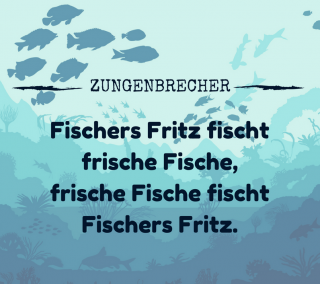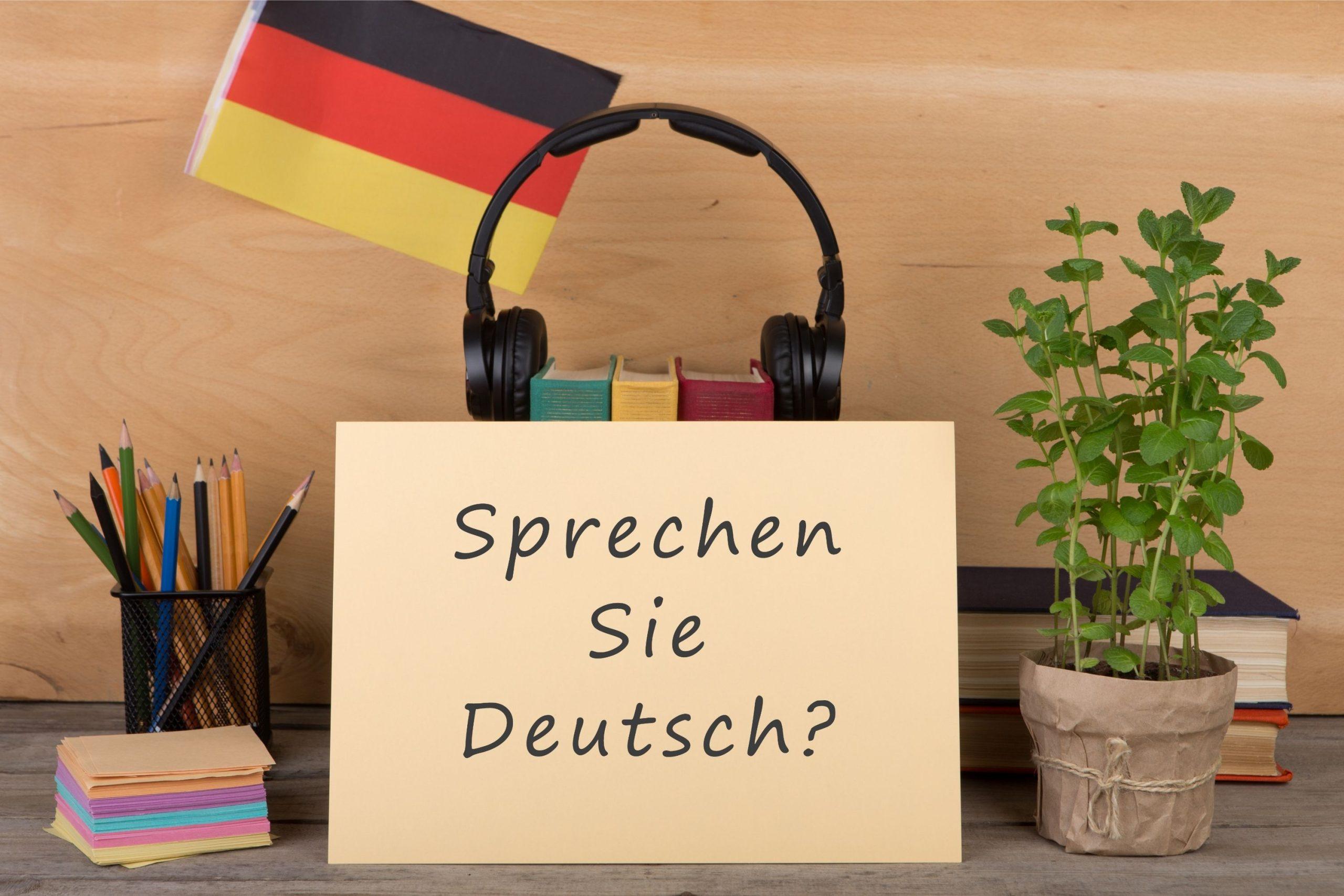
Fun German words are the frequent target of ire from language learners. But once you start to break it down, you’ll find that the real humor isn’t in how German looks or sounds. Instead, it’s the dizzying array of highly literal and incredibly specific nouns and adjectives.
In fact, Germans have such a knack for creating funny words that perfectly describe certain feelings and situations. Learning more of these weird German words makes it a lot easier to chat to other German speakers – and a lot more fun, too.
Here are 18 hilarious German words to help you on your ongoing journey to fluency in the German language.
1. Weichei
Our first funny German word, Weichei, might seem like an innocuous choice at first glance. After all, its literal English translation is “soft egg”, and breakfast food isn’t exactly peak humor. It’s just the German equivalent of calling someone a wuss or a wimp.
2. Backpfeifengesicht
The German language is liberally peppered with lengthy compound nouns that describe oddly specific situations and feelings. Backpfeifengesicht is one of them.
If you deconstruct it, you get Backpfeife – a slap – and Gesicht, which means face. Put them together and you get a useful little descriptive word with an English meaning that means ‘a face in need of a slap.’ A slap face!
3. Schnapsidee
We’ve all found ourselves in the clutches of a Schnapsidee from time to time. In fact, your decision to learn German might even have been one.
This is a word that means exactly what you might suspect it does – its closest literal translation is ‘Schnapps idea’, or booze idea. This “booze idea” refers to those brainwaves we have when we’re a few steins down.
4. Zungenbrecher
‘Peter Piper picked a peck of pickled peppers’ and ‘she sells seashells by the seashore’ – have we unlocked a school memory yet?
Here is a tongue twister (or a more literal translation: ‘tongue breaker’) that’ll ensure you nail the sometimes-tricky German ‘r’: ‘Fischers Fritze fischt frische Fische. Frische Fische fischt Fischers Fritze.’
5. Sitzfleisch
This is one of those German words that looks and sounds so close to its English equivalent that you might think it’s a red herring. But no, “Sitzfleisch” really does mean ‘sit flesh’ or ‘seat meat’.
Having ”seat meat” is actually a compliment most often found in the workplace and means that you’re able to sit and work productively for long periods of time. Constant coffee-breakers need not apply!
6. Feuchtfröhlich
If you clocked that ‘fröhlich’ looks suspiciously similar to the English word ‘frolic’, then you’re already better at the German language than you think. ‘Fröhlich’ means happiness or joy, while ‘Feucht’ means wet or – sorry – moist.
It refers to that warm feeling of pure joy and ease that you get when you’re enjoying a drink in great company. It probably comes one or two drinks before the Schnapsidee!
7. Kummerspeck
We’ve all been there: after a break-up or a lost job, you settle onto the sofa with a feast of beige foods and Ben & Jerry’s, ready to get down to some serious comfort eating and put on some excess weight.
But too much of this sort of emotional eating and you’ll end up with a few pounds of Kummerspeck, or ‘grief bacon.’ This word refers to the excess fat gained from drowning your sorrows in food.
8. Der Drahtesel
Continental European countries tend to be miles ahead of the rest of us when it comes to cycling culture.
If you’ve ever attempted to drive through any of its cities, you’ll know that cyclists rule the roads. So, it stands to reason that there’d be some hierarchy within their ranks – and some strangely adorable trash talk, too.
“Draht” signifies “wire” and “Esel” means donkey. So, “Drahtesel” literally translates to ‘wire donkey!’ What began as a way to insult someone’s rusty bike has now been widely adopted as a common replacement for ‘das Fahrrad’.
Another German expression with donkeys is “Eselsbrücke” (“donkey’s bridge”), which is an idiom used to describe a mnemonic or memory aid. An “Eselsbrücke” is a simpler, easier way to remember something, acting as a ‘bridge’ to overcome the challenge of memorization.
9. Der Wasserhahn
Why use the dull and unimaginative ‘tap’ or ‘faucet’ when you can refer to “Der Wasserhahn”? The literal translation of this one is ‘water rooster.’ It’s a stretch, but if you squint, you can sort of see the resemblance…
10. Fernweh
Consider this the opposite of homesickness – Fernweh. This is made up of the word ‘Fern’, or distance. ‘Weh’, or ache, is a deep longing to be abroad.
It’s decidedly less sexy than the ubiquitous ‘Wanderlust’ that’s been universally poached from the German language. However, “Fernweh”, which first appeared in the early 1800s in a book by Prince Hermann Ludwig Heinrich von Pückler-Muskau, also speaks to something more urgent and painful than wanderlust.
It’s not just a desire to see the world, it’s a ‘distance pain’ that can only be stemmed with adventure. It’s never been more relatable than right now, has it?
11. Die Speisekarte
This one’s considerably less weird than some of its compatriots, but it’s a great example of one of the little ways you might trip up while learning German. In English, what we refer to as the menu at a restaurant is called die Speisekarte – the dish card – in German, while das Menü refers to a set multi-course meal.
12. Erklärungsnot
If you’ve ever been caught doing something you probably shouldn’t, you’ve known the panic-inducing feeling of Erklärungsnot, or ‘explanation poverty’. It refers to the moments in which you don’t really have sufficient explanation for not completing your task or for lying to someone.
13. Die Sehenswürdigkeiten
“Die Sehenswürdigkeiten” are “landmarks” in English, but literally means ‘things that are worthy of seeing’.
Catchy, right?
14. Der Innere Schweinehund
Your ‘inner pig dog’ (literally) is the devil on your shoulder that encourages you to stay for another beer, say yes to a second helping of food, or grab an extra slice of cake. And while the presence of this inner pig dog can lead to an excess of Kummerspeck, he’s also the source of much of your Feuchtfröhlich.
15. Wildpinkler
Split this funny German word into its two root words, and you might be able to work it out. A Wildpinkler (literally a ”wild-pee-er) is someone who, um, pinkles in the wild.
This is an oddly charming term for someone who has no problem unzipping for a nature pee. It’s a great examples of the hilarious words we discover in one language that don’t have an exact equivalent in our own, and often in any other.
16. Der Scheinwerfer

Der Scheinwerfer
The German word for car headlights is unsurprisingly literal: it translates to ‘beam thrower’ in English.
17. Quatschkopf
Have you ever met someone who talks at you, rather than to you? That’s a Quatschkopf – a talkative person who says things that need to be taken with more than a pinch of salt.
Take care when using this – you can call someone a Quatschkopf to their face without causing offense, as it’s often taken as a fond ribbing. However, if you call someone a Quatschkopf behind their back, it makes sense that it has more of a negative connotation.
18. Der Hexenschuss
Lower back giving you some trouble? You might be suffering from Der Hexenschuss – that’s a witch’s shot. In English, we refer to this as lumbago, which is a pain in the muscles and joints of the lower back.
What is the most difficult German word?
It’s all fun and games, of course, until you stumble upon the funny German words that are notoriously hard to pronounce.
Practice those Zungenbrechers, because they’ll prepare you for…
- Eichhörnchen (squirrel)
- Quietscheentchen (rubber duck)
- Streichholzschächtelchen (matchbox)
- Arbeitslosigkeitsversicherung (unemployment insurance)
- Kreuzschlitzschraubenzieher (Phillips screwdriver)
How do I swear in German?
If you want to swear in German, you’ll be delighted to hear that the language’s penchant for compound nouns is liberally sprinkled throughout its more colorful words.
In fact, these don’t even need the English meaning spelled out…
- Scheisskerl
- Friss Scheiße
- Fettarsch
- Hurensohn
- Leck mich (doch) am Arsch
Of course, if the funny German words are thrown your way and you’d rather not rise to it, you can simply say “Eigentlich bin ich Pazifist” – “actually, I’m a pacifist.”
The German Language and Our favorite Funny German Words
A huge part of learning languages is getting to grips with how native speakers really talk. Committing a few of these funny German words and phrases to memory won’t just help you attain fluency, it’ll also make the process a lot more enjoyable. Also, to learn German while having fun, check out my courses here.
And as you are learning these funny German words, why don’t you also find out about 10 Hilarious Ways To Say Hello in German that we found and that might just provide you with the right amount of non-chalance to get a German native’s instant respect?
FAQs about Funny German Words
Here are the most frequently asked questions about fun new words in German you might want to learn and their English language equivalents.
What is slang for “cool” in German?
In German, a common slang term for “cool” is “krass.” This word is widely used, especially among younger people, to express that something is impressive or awesome.
What is the literal translation for “Torschlusspanik”?
The literal translation of “Torschlusspanik” is “closing gate panic.” It’s a unique German term that describes the fear of diminishing opportunities as one gets older, often used in the context of anxiety about major life decisions or milestones not yet achieved.
Where does “öhrwurm” come from?
Over a century ago, the term “Ohrwurm”(meaning “ear worm”) was created by Germans to define the phenomenon of a song persistently lingering in the mind. This funny German compound word is used to describe a catchy song stuck in your head that is difficult to get rid of.
Summing Up: Funny German Words and Phrases
So, I hope these fun and weird German words made you appreciate the unique beauty of the language, where literal translations often paint vivid pictures, and the unique sound of the words adds to their charm.
Whenever you discover words that go beyond simple literal translations or learn a ”tongue breaker” in a new language, you’re not only expanding your vocabulary but also discovering a new way to express emotions and experiences.
If you want to learn German at ease and with joy, try out my German courses here.

